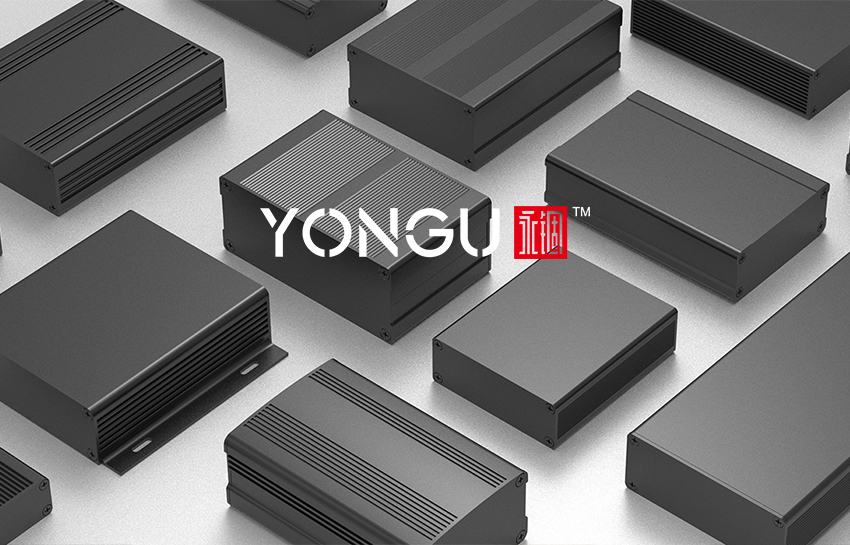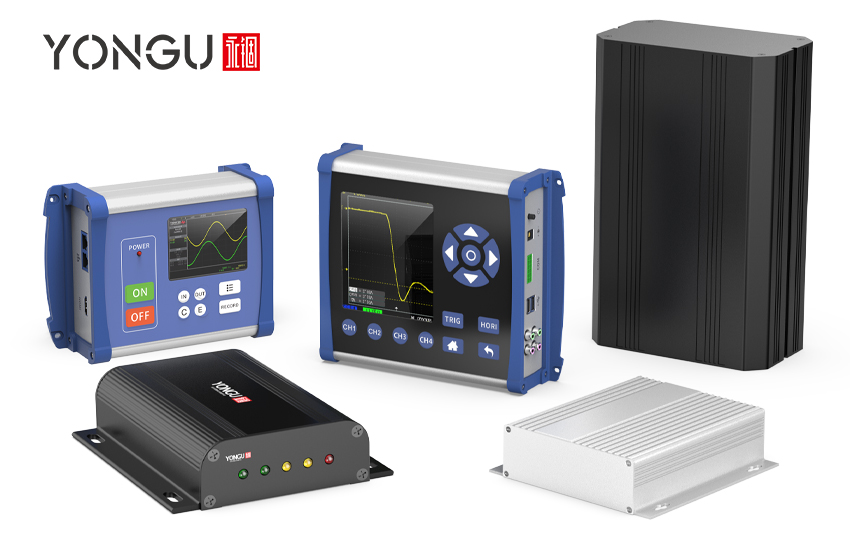Enclosures may not seem like an essential part of electrical system design. While it is true that these boxes can be used to protect against high temperatures, moisture, and humidity when properly designed, they play a vital role in ensuring the safety of sensitive electronics and other equipment.
Equipment needing protection can suffer significant system failures and electrical shocks if exposed to excessive heat or moisture for an extended period. Protected components will continue to function correctly and reliably if an enclosure is used.
- EQUIPMENT SAFETY
- EMPLOYEE SAFETY
- REDUCES RISK OF FIRE
For those who own or operate electrical equipment, their safety and their coworkers must always come first. Accidents involving electrical equipment can happen extremely quickly, even if we don't consider them harmful. The majority of accidents can be avoided by using high-quality electrical enclosures. Additionally, ensuring that your personnel is adequately trained can help to ensure a safe working environment.
THE ELECTRICAL ENCLOSURE BOX MATERIAL
The environment is the most critical factor to consider when selecting an enclosure material. Corrosion-causing elements such as dust, radiation, temperature, and chemicals must be protected by electrical enclosures, whether used indoors or outdoors. Think about how each material compares to the environment in which it will be used before deciding.
- METAL
Since there are many metallurgy tools to choose from, all three metals are the easiest to customize during the design and fabrication stages. Because metal conducts heat better than other materials, it can help dissipate high temperatures if appropriately designed.
- THERMOPLASTICS
Plastics made of thermoplastics include thermoplastic polycarbonates, polyesters, ABS, polyvinyl chloride (PVC), and other types of plastics. Plastics hold up well and can quickly expand or install when used in corrosive environments, thanks to their flexibility. Thermoplastics are excellent insulators, so use them for electrical controls that are particularly temperature-sensitive. Thermoplastics are less customizable than other materials, so the available base sizes and shapes
may constrain you when it comes to design and construction.FIBERGLASS
This material has its strengths and weaknesses on both ends of the spectrum. Fiberglass is the most chemically resistant material because it cannot rust or oxidize when exposed to corrosive elements. It is most difficult to modify or shape fiberglass enclosures. As a result of fiberglass's sensitivity to sunlight and heat degradation, it is only appropriate for a limited number of applications.
Always Check the Material
Using the wrong material for your enclosure can put your safety at risk. Various types of materials are created to serve multiple functions. All have unique qualities that set them apart from the rest. Choosing the wrong material for your application can lead to disastrous results. There are several considerations, such as whether or not the product will be exposed to harsh chemicals. Consider the material's weight, its strength, and its longevity.
Because enclosures are considered low-tech purchases, many people do not give them much thought. Choosing the wrong electrical enclosure box can have serious consequences. It is possible to avoid them with some preparation and research.
WHAT TO LOOK FOR WHEN CONSIDERING AN ELECTRICAL ENCLOSURE?
- SECURITY
- RATINGS
To determine how much protection you need and how much protection you can get from each enclosure, it is essential to know the ratings of the various enclosures. The settings are the standard throughout the country, so you'll always know what's considered hazardous or not.
- ACCESSORIES
Window kits, carrying handles, and cord grips are all things to consider. Take a moment to think about how you can better manage your temperature. The life of your electronics may be extended significantly if your box has a fan that circulates air.
- ENVIRONMENT
Temperature and humidity levels are two of the most important questions to ask.
In terms of environmental conditions, which are the most common?
What is the most pressing environmental issue of time?
Answering these questions can aid your decision-making process.
- SIZE
- THERMAL MANAGEMENT NEEDS
- APPLICATION
The search for the ideal electric enclosure box does not have to be arduous. Simply knowing what you want is required before you can begin searching for it. Enclosures can fail and damage whatever is inside if they aren't adequately selected for the job. As daunting as it may seem to find the perfect enclosure for your needs, doing so will save both time and money in the long term.
- BEWARE OF WEIGHT LIMITS
YOU ELECTRIC BOX
YOUNG presents electrical enclosures in three different series, including H Series, J Series & K Series.
H Series - YONGU H37 204*48*L Electronic Aluminum Enclosures
It is available in 61 different models with built-in split-type extrusion structures, including 1pc top housing, 1pc bottom housing, 1pc front panel, and rear panel. Good heat dissipation, easy to be assembled. L shape brackets for panels can be customized to wall mountIts specific features include
- Electronic Aluminum Enclosures
- Rugged and robust for heavy-duty use
- Durable, which can be used for a long time
- Good quality aluminum material, al6063, and al5052
- Can be used for din rail
- Completely customizable in every aspect of dimension, hole drilling, screws, surface treatment, and printing.

J Series - YONGU J12 66.2*27.5*L Aluminum Box for Electronic
It is available in 44 different models of built-in one-piece structure extruded, including 1pc main enclosure, 1pc front panel, and 1pc rear panels—good heat dissipation, easy to be assembled.
Its specific features include
- Aluminum Box for Electronic
- Rugged and robust for heavy-duty use
- Durable, which can be used for a long time
- Good quality aluminum material, al6063, and al5052
- Can be used for din rail
- Customizable panel thickness from 1.5mm/2mm/3mm/5mm/8mm, etc., hole drilling, screws, surface treatment, and printing.
K Series - YONGU K01A 70*35*L Plastic Junction Box
It is available in 28 Models waterproof series, including full plastic protected plastic covers, half protected plastic covers with aluminum end panels, half protected plastic end covers, wall-mounted flange, and can use the sticker instead of the printing.
Its specific features include
- Plastic Junction Box
- Rugged and robust for heavy-duty use
- Dustproof, which can protect your PCB from hitting
- Extruded aluminum housing and ABS protected covers
- Conductivity can be achieved by utilization of the contact between the unfinished inner surfaces
- Completely customizable in every aspect of dimension, hole drilling, screws, surface treatment, and printing
Benefits
An electrical junction box from YONGU combines aluminum and plastic to provide the best possible protection for your wiring. The rated voltage for the YONGU aluminum electrical enclosures is up to 1,000 volts. Because of the potential for higher short circuit currents at the input, installing a current-limiting protection device with a high cut-off current is necessary.Weatherproof electrical junction boxes are designed to keep moisture out of electrical and electronic circuits by using an innovative design. Small electrical junction boxes and standard electrical pull box sizes are available in YONGU aluminum electrical enclosures, along with the necessary customization options for installation.
If the correct material and models are selected, they can deal with temperature, moisture, and humidity issues.
Standard DIN rails, mounting plates, front panels, and dividers can all be attached without any tools, thanks to the system's tool-less mounting options. Preassembly outside the enclosure is made simple by connecting the accessories to mounting brackets of varying heights and sliding them into the enclosure. The assembled modules can be inserted and removed without using any tools.
If you're looking for a way to keep your electronics safe, YONGU's electrical junction enclosures are a great option. They can be used in various industries and applications, including solar power, wind turbines, and building HVAC controls.
For further information and customized product of your requirements, visit our website https://www.yg-enclosure.com/products/Aluminum-Electronics-Enclosure.html.
You can also contact us at +86 13326782625 or write us at [email protected].




